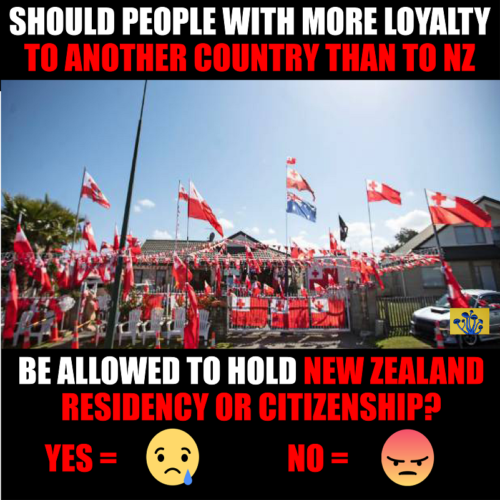Some hysteria has been generated recently about China’s Social Credit System. Fears of a cyberpunk-style technodystopia have been stoked by new advancements in mass surveillance technology and data mining. As this essay will show, New Zealand already has a social credit system, and it does the same thing that the Chinese one does.
The Chinese social credit system, planned to be fully introduced by 2020, has sparked intense fears among libertarians. Already it is the case in China that people with too low a social credit score have been denied access to trains and other means of transportation. The biggest fear is that this Social Credit System will spread to other societies, leading to a world where certain groups of people get to enjoy extra-legal privileges denied to those lacking sufficient “credit”.
The Chinese system works by assigning every individual citizen a score based on their level of trustworthiness. This trustworthiness is calculated by combining a number of variables that relate to that individual’s criminal history, indebtedness, education etc. It also includes several Government blacklists, which have been compiled by domestic intelligence forces.
Anyone with a sufficiently low credit score will be denied services. This doesn’t only mean restrictions on transportation, as mentioned above, but also restrictions on where you’re allowed to live, what schools you may attend, who you’re allowed to marry and even what healthcare you’re allowed to get. Some far-thinking fantasists are afraid that an automated, computer-based system of social credit might be introduced to the West by tyrannical future governments to sharply restrict freedoms here.
In reality, New Zealand already has a Social Credit System that affords extra-legal privileges to certain groups, and so does everywhere else. It’s called wealth, and it is the default social credit system of every political system that has degenerated into oligarchy, as the West has done.
We were given a crude look at it this week when Joseph Babich, a wealthy member of one of New Zealand’s most prominent winemaking families, was let off scot free by a judge on charges of importing cocaine and methamphetamine. Importation of a Class A drug carries a maximum penalty of life imprisonment.
Contrast the leniency shown in the Babich case to the harshness of the sentence handed down to Thomas Tawha for poaching 59 trout to feed his own family earlier this year. Tawha got four months in prison.
What is clear from contrasting these two cases is that a sophisticated and all-encompassing social credit system already exists in New Zealand, and it’s similar to the Chinese one. ‘Trustworthiness’ means people that the Government likes (i.e. the obedient). Anyone the Government likes gets special privileges, and anyone the Government doesn’t like gets the hammer brought down on them for the slightest indiscretion.
The purpose of a criminal trial is not really to establish guilt, but to establish trustworthiness. Joseph Babich is a man who benefits immensely from the current political order, and therefore he can be trusted by the political class to act to maintain that order. Consequently, he escapes punishment. Tawha is a man who suffers immensely under the current political order, and therefore cannot be trusted to maintain it. Therefore, his punishment is brutal.
The New Zealand social credit system is mostly based around wealth, in that wealthy people are continually being let off crimes scot free, given warnings or not being investigated, while poor people are continually being hammered. Race is also a big part of it, in that white people and Asians can be trusted to support the current political order, whereas Maoris cannot.
To be fair, some of the aspects of this social credit system are not unreasonable. Babich had had no previous contact with the Police, while Tawha had dozens of previous convictions.
In Tawha’s case, however, at least some of the severity of his punishment can be attributed to the fact that he rejected the legitimacy of the New Zealand court system, even declaring himself a sovereign citizen. This is similar to the case of Brian Borland, who received four years and nine months imprisonment for unrepentantly growing cannabis. Borland’s sentence was heavier than those many of those handed out to rapists, people who commit vehicular manslaughter and people who pimp out children.
In summary, a comprehensive social credit system already exists in New Zealand, primarily based around personal wealth. With a high enough credit score you can break the law without punishment, and with too low a score the legal system brutalises you. This credit score is little more than the Government’s estimation of how compliant, obedient and submissive you are – the more taxes you can be milked for without complaint, the higher you are.
*
If you enjoyed reading this essay, you can get a compilation of the Best VJMP Essays and Articles of 2017 from Amazon for Kindle or Amazon for CreateSpace (for international readers), or TradeMe (for Kiwis).




